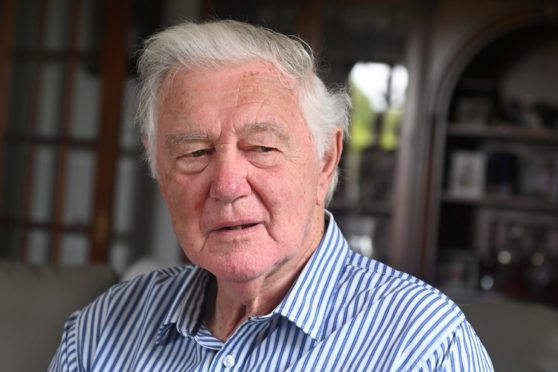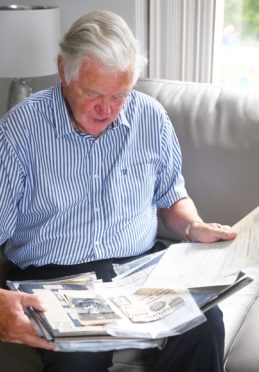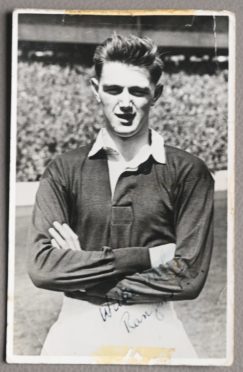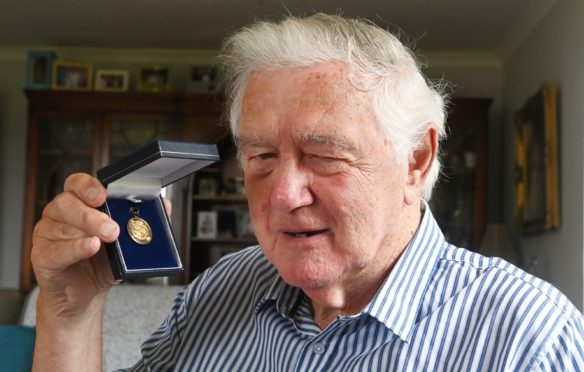A north-east footballer who had his on-field dreams crushed by a bogus medical diagnosis has urged his comrades from the era to get “second, third or fourth” opinions to ensure they are fit.
William Moles, 84, had the world at his feet when he was playing for Rangers as a 20-year-old in 1957.
One of his first games for the Glasgow giants was against a star-studded British Army team featuring Manchester United greats Bobby Charlton and Duncan Edwards.
However, his on-field dreams for his boyhood heroes were tragically cut short after just 10 first-team games following a severe head-knock.
Mr Moles says doctors misdiagnosed him at the time amid concerns about footballers from the era are now suffering severe health consequences, including Aberdeen’s Denis Law who has revealed he has dementia.
‘The consultant said I had MS, but my doctor disagreed’
Mr Moles, who has lived in the north-east since the 1970s, was among the band of no-nonsense defenders from the 1950s.
The era required players to be heading heavy balls to safety through 90-minute matches and training.
However, after one aerial battle gave him a particularly big knock, he needed medical attention.
Mr Moles, who also worked as an engineer during his football career, said: “It was a heavy ball and I thought I had a mild concussion but Rangers wanted to find out if there was more to it.
“So they arranged for me to see a consultant who diagnosed me with MS, which was the fashionable thing to do at the time.
“Now, at that time my own doctor and the Rangers doctor didn’t agree with that to the extent Rangers were prepared to send me to Mexico for treatment – but it didn’t come to that.
“In the end Rangers couldn’t take any chances with me so they let me go. I played a few games for Montrose and Third Lanark but my heart was set on Rangers.
“The only good thing was the Army didn’t take me for my national service because of the MS.
“Years later I went in the hospital for a few days for tests and got told I didn’t have MS. We celebrated. It took a while to sink in. I’m 84 now and have absolutely no problems.
“It’s pretty serious, footballers should get second, third or fourth diagnoses.”
‘I am one of the lucky ones’
The health of footballers from the 1960s, 50s and earlier has come into sharp focus following the diagnosis of Denis Law with dementia.
The Aberdeen-born Scotland great has blamed heading the heavy ball of his era for his condition.
His diagnosis followed the same news for his Manchester United teammate Bobby Charlton and Celtic legend and former Aberdeen manager Billy McNeill.
Mr Moles believes the early end to his own career may have spared him from a similar fate – before it turned him to a career in insurance and pensions, predominantly in the fishing industry, that brought him to the north-east in the 1970s.
He said: “I thought I had a mild concussion. I had a sore head and it lasted for a while, I never even thought of MS until the doctors brought it up.
“I never stopped heading the ball back then. I was quite happy up in the air.
“I thought it was a concussion and didn’t think anything more of it at the time, but knowing what we know now, probably yes, the heavy ball was doing some damage.
“The balls then used to absorb the water and everything, sometimes they weren’t even round.
“Looking at it now, perhaps I am one of the lucky ones.”



